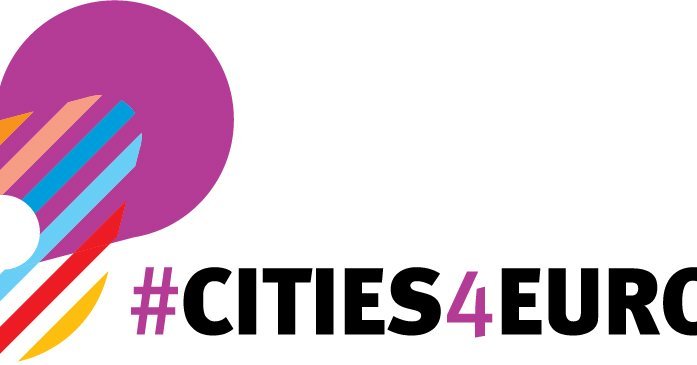The New Federalist: How did the ‘Cities for Europe – Europe for citizens’ initiative start? On what kind of values do you base the project?
Federico Guerrieri: ‘Cities4Europe – Europe for citizens’ aims to involve, inspire and impact. Through the campaign, EUROCITIES will involve citizens in a dialogue about our future, inspire all levels of government to build societies where people come first, and impact the way decisions are taken in Europe. One year ahead of the European Parliament elections, we need to seize the opportunity to change the way politics is done in Europe. ’Cities4Europe - Europe for citizens’ gives cities and policy makers a unique opportunity to engage with citizens in a dialogue about our future, and to create societies where people come first. To quote Daniël Termont, president of EUROCITIES and mayor of Ghent, “at a time when politics, both at national and European level, is failing to match people’s expectations, local leaders must commit to engage their citizens in a dialogue about our future.”
TNF: What types of events are organised under the initiative?
FG: ‘Cities4Europe – Europe for citizens’ will begin in May 2018 with a series of citizens’ consultations and other local initiatives taking place throughout EUROCITIES network of major European cities, that between them govern more than 130 million citizens. On 7 May 2018, EUROCITIES will organise the campaign’s European launch in Brussels, where we will welcome European, national and local political leaders, as well as cultural personalities. A high level public debate will take place in Brussels (Bozar), and will be followed by an artistic performance and reception. Further events held in cities throughout Europe in May will help shape a new way of doing politics. We want to showcase successful local initiatives that engage citizens, present ideas for new forms of democracy and map out a positive, common future. During the campaign, EUROCITIES will collect recommendations from cities and citizens on engaging citizens in policy-making.
TNF: How do young people contribute to the project?
FG: Young people are one of the campaign’s main target audiences. Besides being directly involved in the citizens’ consultations, Europe at school, and other activities organized throughout Europe, Cities4Europe will also be an opportunity for EUROCITIES members to select a young ambassador for their city. This young person, aged between 18 and 30, will accompany the city delegation to the EUROCITIES Conference in Edinburgh this November. A first selection of the above-mentioned recommendations will be presented by our young representatives, who will share their ideas and dreams for a better Europe. We strongly believe that the involvement of young people is important when we are debating the political future of citizens in Europe.
TNF: What are the Focus cities of the project, and how have they been selected?
FG: Europe’s local areas offer the right scale to respond to the challenges Europe is facing and to develop sustainable societies where people come first. Local initiatives will take place throughout our member cities, which are encouraged to organise activities in disadvantaged neighbourhoods. EUROCITIES will invite the campaign’s partners – including the Young European Federalists - to organise local initiatives in cities, towns and areas not covered by our network. By bringing people and policy makers together to explore new ways of involving citizens in the decision-making process at all levels of government, we hope to build more trust between citizens and public authorities.
TNF: Beyond Cities for Europe, what other projects does Eurocities have?
FG: EUROCITIES brings together the local governments of over 140 of Europe’s largest cities, and over 45 partner cities, that between them govern 130 million citizens across 39 countries. In doing so, we work across six thematic areas (culture, economy, environment, knowledge affairs, mobility and social affairs) and participate in over 20 EU funded projects. Examples include our Cities Grow project that concentrates on integrating migrants through work; the European Mobility Week that culminates in the annual car free day in many cities, and the Covenant of Mayors - an initiative of cities that commit to reduce their C02 emissions and adapt to climate change.
In terms of our policy work we aim to reflect the on the ground realities of daily life in cities to other levels of government. One really significant recent achievement for cities is the Urban Agenda for the EU, which puts cities, member states and EU representatives in the same room to discuss and implement better funding, better knowledge sharing and better regulation for urban areas.



Follow the comments: |
|
